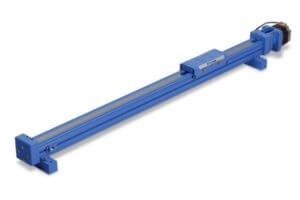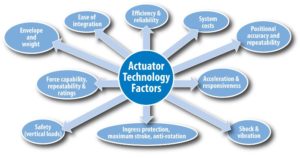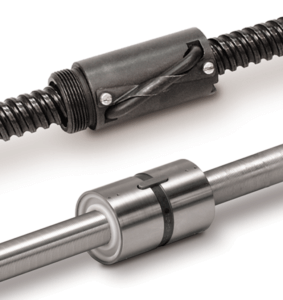
Go electric!
So maybe you missed Bob Dylan’s infamous switch to electric at the Newport Folk Festival in 1965. These days, you, too, can go electric—with an electromechanical system instead of hydraulic. Our new e-book helps you overcome pre-conceived notions and provides tips for a successful performance.

Machine builders: Have it your way
It’s usually straightforward to tweak a feature on a catalog product into something we call a modified standard product. Sometimes, you may need a highly customized solution for a specific application. That means starting with a blank sheet of paper. It all depends on your application and how the actuator is used in it.

Pneumatic rodless cylinders: Point-to-point motion control
Rodless cylinder technology has evolved from the first band cylinder, introduced in 1955, to today's high-performance rodless electric actuators.

How accurate is an actuator?
Accuracy and repeatability are two separate but related concepts of a linear motion system. The motor, drive and electric actuator itself all influence accuracy and repeatability. It’s quite possible you may need repeatability more than accuracy.

Fast and flexible: How to design a mask-making machine
Manufacturer rapidly invents a new way to make face masks in response to the COVID-19 pandemic. Electric actuators assist with linear motion technology.

The best things come in sturdy packages
Automatic packaging machines must efficiently and consistently form and assemble boxes of all shapes and sizes. Pneumatic cylinders have been a long-standing and economcial solution for box-forming machines. However, electric linear actuators provide controlled movement and reliability advantages while meeting the same motion and force requirements.

Traditional or integrated actuator? 10 factors to consider
Two common styles of electric rod actuators offer performance advantages depending on application and requirements. Knowing how to assess the differences and what to compare helps you meet your spec requirement.

Easy as pie
Five best practices for designing and installing electric actuators in food processing equipment help create open/clean-in-place designs.

Actuator know-how for machine design engineers, Part 2
Machine designers face a variety of options when selecting linear actuators. It all comes down the best fit for the application: what solution provides the best results at a cost– effective price.

Haunted house animatronics: Expect the unexpected…(cue the evil laugh)
What makes scary creatures scary? It’s not smoke and mirrors. It’s motion control.

 Ask an Engineer
Ask an Engineer